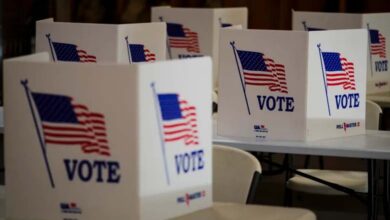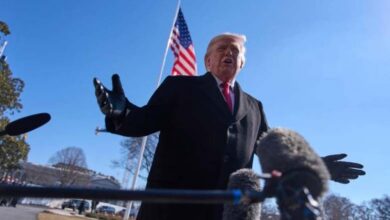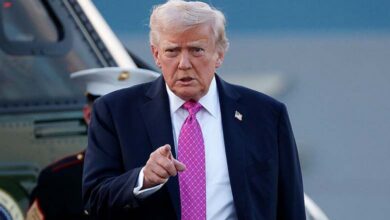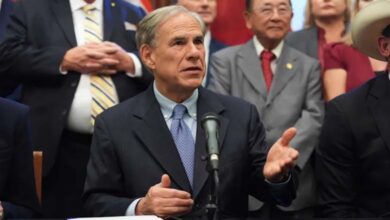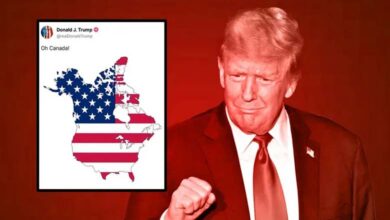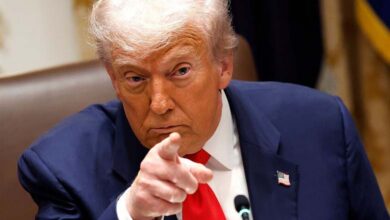Can Congress Stop Trump’s Tariffs?
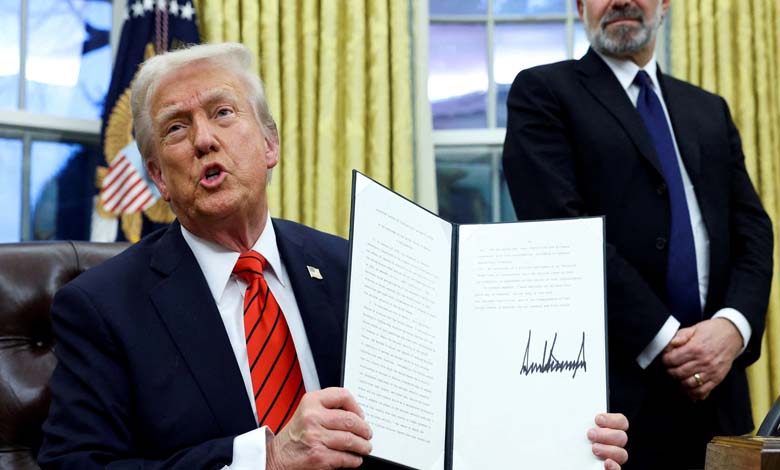
Since Donald Trump’s tariffs shook the global economy, discussions have emerged about how they could be stopped — either through negotiation or via internal mechanisms within the U.S. system.
A few days ago, the U.S. Senate passed a bill, by a narrow 51–48 majority, aiming to repeal tariffs that President Donald Trump imposed on Canada. This raised questions about whether Congress can play a broader role in halting such tariffs.
-
Congress rejects resolution restricting support for Israel
-
Congress votes on project to rescue the United States from Federal Shutdown
The move reflects growing opposition within Congress to the trade policies adopted by the administration, which have sparked controversy over their impact on the U.S. economy and relations with key allies.
The bill was introduced by Democratic Senator Tim Kaine and supported by Republican Senators Susan Collins and Rand Paul, indicating a rift within the GOP regarding Trump’s trade agenda. But the story goes deeper.
-
U.S. Congress considers designating the Houthi militia a Terrorist Organization
-
The Future of Dominance: How Military Realignment Enhances America’s Power
What the Law Says
Legally speaking, Congress holds the constitutional authority to impose and repeal tariffs.
Article I, Section 8 of the U.S. Constitution grants Congress the power to “lay and collect taxes, duties, imposts and excises.”
However, over the past century, lawmakers have gradually delegated much of this authority to the executive branch, according to several U.S. reports.
Today, Congress could theoretically reclaim its tariff-setting powers by repealing or amending laws that grant the president broad discretion in trade matters.
-
Security Classification and Travel Restrictions: The U.S. Rewrites Its Global Relations
-
“Zero Hour” Nuclear Crisis: Where Would the U.S. President Hide?
Major Obstacles
In practice, however, halting Trump’s tariffs through Congress faces numerous political and procedural hurdles that make it nearly impossible.
The measure is expected to stall in the House of Representatives, where Republican leadership remains closely aligned with Trump. According to Newsweek, most House Republicans have shown little appetite for opposing the tariffs.
Congressional intervention also faces structural barriers. Recently, Republicans secured a budget negotiation rule that blocks Democrats from forcing votes on administration policies in the House, effectively shielding Trump’s tariffs from challenge.
-
The Writers of the “State of the Union” Address… A Grueling Task for the President’s “Mirror”
-
8 Facts Explaining the History of the “State of the Union” Address in the United States
Thus, the only path to a House vote would require an initiative from Republicans themselves — or from House Speaker Mike Johnson, a close Trump ally — which is highly unlikely.
Even if both chambers passed a bill to overturn Trump’s decisions by simple majority, the president could still veto it.
To override a presidential veto, Congress would then need a two-thirds majority in both chambers — a scenario that experts also consider highly improbable.
-
Why Can’t Trump Be Elected for a Third Term?
-
The Week of Reckoning in America… Trump’s Loyalty Philosophy under Scrutiny


